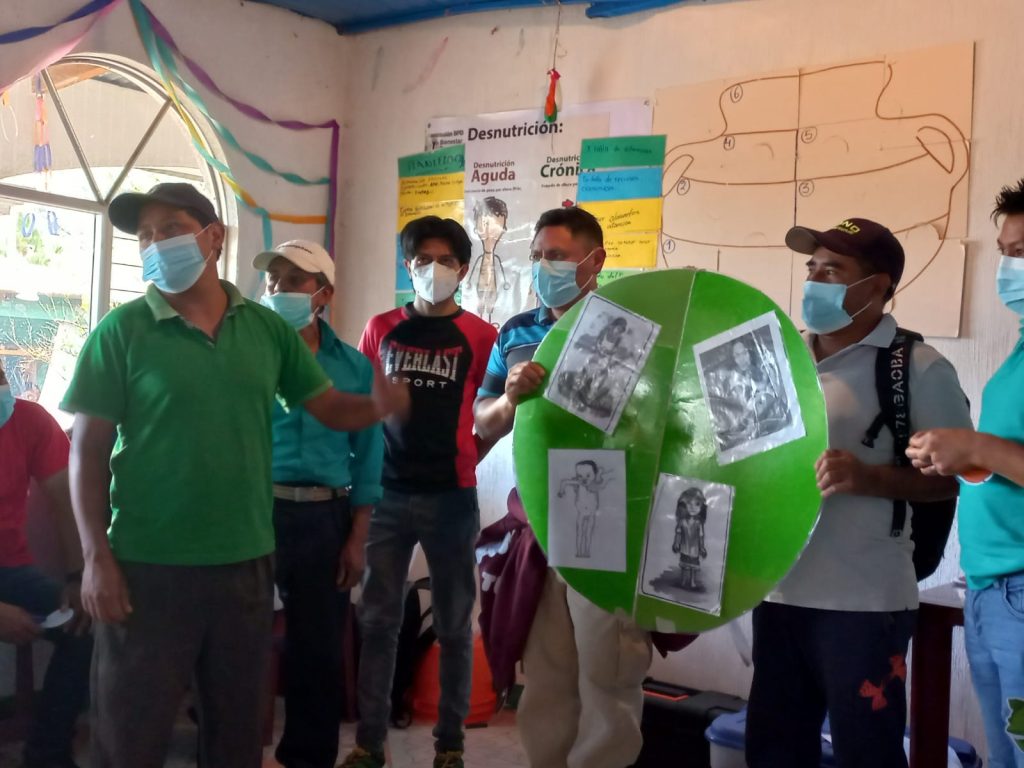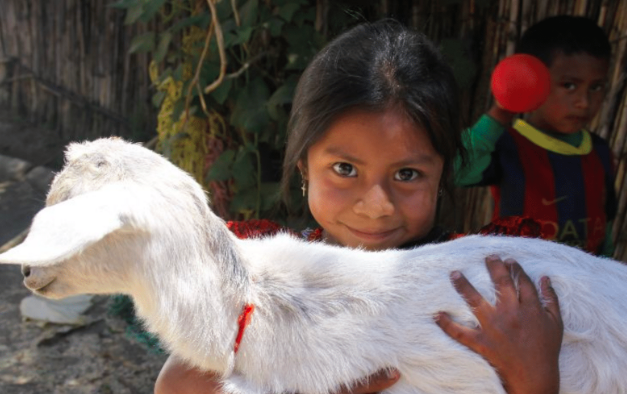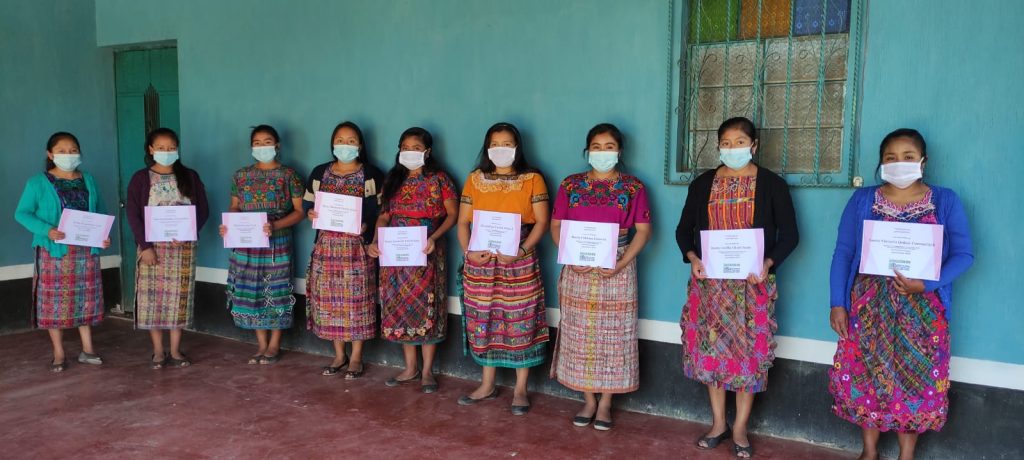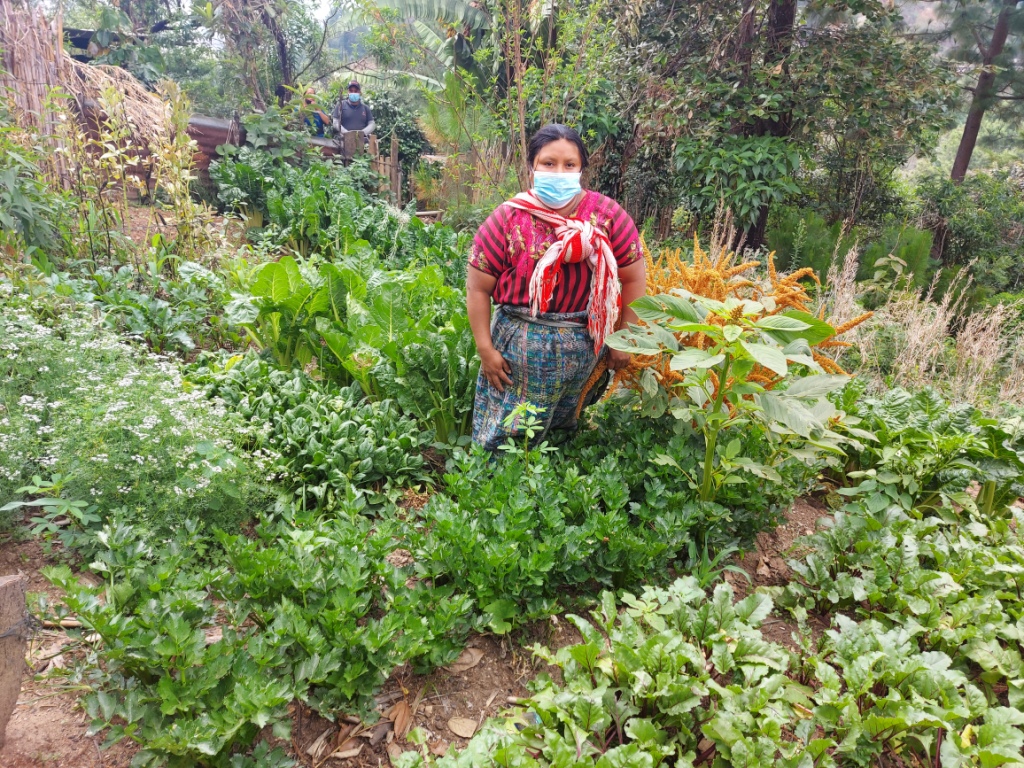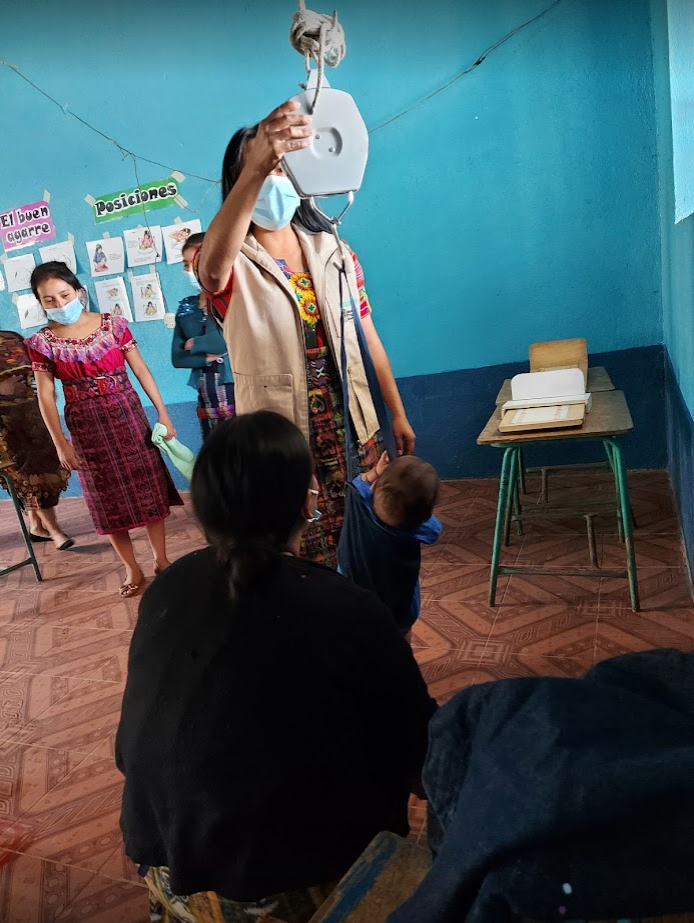In Guatemala, nearly 50% of children under the age of five suffer from chronic malnutrition. Unfortunately, this is one of the highest indices in the world. Ensuring proper nutrition for children and families in our partner communities is the overarching goal of our integrated program. We support local farmers in gaining the knowledge and experience necessary to cultivate a wide range of crops, maximize yields, and adapt to the challenges presented by climate change. We also provide dairy goats, laying hens, and rabbits to families to serve as sources of protein in their diets. The intention of these aspects of our program are to increase food security year-round.
We work with families to inform them about nutrition, how to identify signs of malnutrition, and how to support proper nutrition in the home through healthy food choices. Training sessions are also carried out so that mothers have the tools necessary to combat the risk of malnutrition in their children from birth through the second year of their life. These resources serve to empower families to lead the way in combating chronic childhood malnutrition in their communities. Monthly visits from ABPD staff to measure and weigh children from 0 to 24 months of age help us measure levels of childhood malnutrition in our partner communities throughout the entire program cycle and monitor progress in reducing levels of malnutrition.
At the beginning of the program cycle, several women from each community are selected as health promoters. These women are trained during the following two years so that they will be able to serve as a trustworthy reference to provide guidance to community members on topics ranging from agriculture and nutrition to family planning, empowerment and more. This key element of our integrated program supports the development of women’s leadership in partner communities and ensures that successes gained during the two-year program cycle are maintained and expanded upon once we move on to new partner communities.
These are a few examples of some of our program’s components that work in unison to reduce the incidence of chronic childhood malnutrition in rural communities in Guatemala. We believe that these interventions are key to tackling the problem of malnutrition because they support communities in taking charge and leading the way, setting the groundwork for long-term success and sustainable outcomes.

